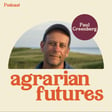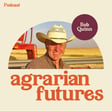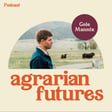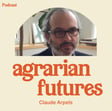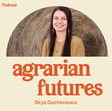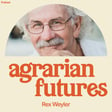
Building Collective Power in the Rural South with Terence Courtney
Across the south, generations of Black farmers and business owners have faced losing not just their land, but their livelihoods - pushed out by discriminatory lending, land theft, and the consolidation of power. Yet from that struggle has grown something powerful: a movement rooted in cooperation, where farmers pool their resources, share their knowledge, and build wealth together instead of competing for survival.
That spirit of collective power is what drives the Federation of Southern Cooperatives, where Terence Courtney works to support Black-owned farms and rural businesses through education, advocacy, and cooperative enterprise. The Federation’s model flips the extractive script of traditional capitalism, proving that shared ownership and community investment are sound economic strategies.
In this episode, we dive into:
- The long history of Black cooperative movements in the South.
- How cooperative models help farmers build wealth and autonomy in the face of systemic discrimination.
- Why collective economics is key to sustaining rural communities.
- The Federation’s approach to balancing profitability with community values.
- How policy and history continue to shape access to land and opportunity.
- What true self-determination looks like in agriculture.
More about Terence and the Federation of Southern Cooperatives:
Terence Courtney began organizing with the Service Employees International Union to improve economic conditions for working people. He led union campaigns and later became the union’s statewide representative in Georgia. He’s co-founded and led coalitions such as Atlanta Jobs with Justice and a community group focused on the public sector called the Atlanta Public Sector Alliance.
Expanding from a city to a regional focus, Terence organized US born and foreign born (immigrants) of African descent to educate and raise consciousness about immigrant rights and mass incarceration from a Black Diasporic perspective for the Black Alliance for Just Immigration. He co-developed the Organization for Human Rights and Democracy and served as the Director of Organizing overseeing campaigns against school privatization, as well as its spin off project: Cooperative Atlanta. Currently Terence serves as the Director of Cooperative Development & Strategic Initiatives for theFFederation of Southern Cooperatives
Agrarian Futures is produced by Alexandre Miller, who also wrote our theme song. This episode was edited by Drew O’Doherty.



